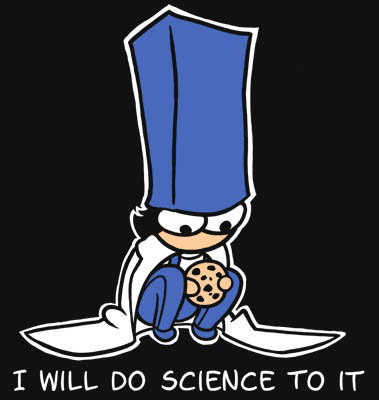“The primacy of contemplation over activity rests on the conviction that no work of human hands can equal in beauty and truth the physical kosmos, which swings in itself in changeless eternity without nay interference or assistance from outside, from man or god.” –Hannah Arendt in The Human Condition

I’ve been thinking a lot about methods lately. I want to spend a few paragraphs considering the current state of affairs for social scientists interested in science and technology as their objects of analysis. What kind of work is impossible in our current universities? What kinds of new institutions are necessary for breaking new ground in method as well as theory? Think of this post as an exercise in McLuhan-style probing of institutions of higher learning. I’m going to play with a lot of “what-ifs” and “for instances.” None of this is particularly actionable, nor am I even interested in proposing anything that would be recognized as “realistic” or even “pragmatic.” Mainly, I’m interested in stepping back, considering the state of our technosociety, and asking what kinds of questions need asking and what kinds of science is being systematically left undone.
In some ways, I’m asking the same kind of question your high school guidance counselor asked: “If money weren’t an issue, what would you do with your life?” Aristotle asked this question (towards much different ends), and Hannah Arendt reconsidered the question of the vita activa in her book The Human Condition. Its also similar to the life Karl Marx hoped we would all live in a communist society:
“In communist society, where nobody has one exclusive sphere of activity but each can become accomplished in any branch he [sic] wishes, society regulates the general production and thus makes it possible for me to do one thing today and another tomorrow, to hunt in the morning, fish in the afternoon, rear cattle in the evening, criticise after dinner, just as I have a mind, without ever becoming hunter, fisherman [sic], herdsman or critic.”[1]
For academics, I always image the answers to these questions involve long stays in the field punctuated with lengthy sabbaticals where you can hold up in a comfortable personal library and read and write in big comfy chairs reminiscent of a Barnes & Noble circa 2003. No publish-or-perish pressures and no unreasonable teaching requirements.[2] Then again, if we live in a world of such abundance, perhaps many of us would be out of the job. What kind of utopia would let an academic take a 3-year all-expenses-paid sabbatical to study world hunger? What kind of academic would take such a Faustian bargain? Perhaps it is the sabbaticals and lengthy field trips that produce a world without hunger, but I suspect that’s not the best way to solve that problem. Many would say there’s no problem to solve, there’s only concentrations of power that result in unfair resource allocation. So lets say that a philosopher king comes to power and declares that all institutionally credentialed social scientists have the full resources of the world (after all, philosophy does not preclude nepotism) to solve the grand challenges facing global society.[3] What would we do?
I love the idea of praxis, and I think it’s a good place to start. Unlike the two other “ways of life,” theoria (contemplation) and poesis (making), praxis means you go out into the world and start doing things. It’s probably the most social way of being. You can make and contemplate in total isolation but doing will eventually require that you run into someone whether you like it or not. You might not have a full lay of the land, and there are probably some unavoidable unknown unknowns, but rarely does anyone ever act with exactly the right amount of information anyway. By going out and tinkering, poking, prodding, and collaborating on shared projects, social scientists can learn about society through the act of making something useful. Praxis is learning by doing and I think if it’s done at the proper scale, it could produce great results.
Ultimately we would serve ourselves well to heed Bruno Latour’s dictum “We Have Never Been Modern.” This slogan of a book title contends that the separation between nature and society is an arbitrary construction and blinds us from seeing what is truly there: a mix of society and natural environments. These two are inextricably intertwined and, as the social ecologists would remind us, in order to solve problems that we’d typically define as “environmental” usually requires solving social problems as well. When there is widespread equality and justice, you can achieve a much deeper level of sustainability. A truly sustainable sustainability.
Obviously we don’t want physicists (to say nothing of sociologists) screwing around with nuclear reactors just to “see what happens” but there probably isn’t much harm in tinkering with Arduino microcontrollers or trying to make a vegan alternative to cheese. This may sound like some kind of concession to the aforementioned unknown unknowns: some things are just too risky and complex so lets go play with toys. That is almost the exact opposite of what I am proposing. What I am proposing is the great progress myth’s equivalent of “going back” to an old save point in a video game. A time when the scientific community made a collective decision (to put it simply) about how they were going to go about conducting science. I’m suggesting we try out the other path.

In his Mangle of Practice Andrew Pickering offers an analysis of scientific action in what he calls the “performative idiom.” This means that instead of thinking about science as a collection of truths or a search for knowledge, we can think of it as a thing that people do: Science as a verb, instead of a noun. His case study is a history of early particle physics and the beginning of large-scale industrial science. Here he quotes the recently deceased physicst Dr. Donald A. Glaser who had no interest in what he called “big science.” He knew that in order to find the mysterious subatomic particles that make up the universe, (or just as importantly, to find them first) he would have to build a much larger machine than any small research group could operate. He wanted to find what could best be described as a more “humane” way of doing physics:
“There was a psychological side to this. I knew that large accelerators were going to be built and they were going to make gobs of strange particles. Buy I decided that if I were clever enough I could invent something that could extract the information from cosmic rays and you could work in a nice peaceful environment rather than in the factory environment of big machines… I wanted to save cosmic ray physics.”[4]
Social scientists find themselves in a similar predicament. The influential positions and most resources are tied up in Big Social Science. It means writing Big Textbooks, editing Big Journals, and constantly applying for Big Grants. All of which, are becoming scarce and (in my opinion anyway) less wieldy. The answer isn’t exactly something called Little Social Science, but we do need to change our course. We need to move away from seeking the big grants (they won’t be around for much longer anyway) and start looking at how to do our work in a way that builds social capital, not political or financial capital. Otherwise, we’re letting the creeping influence of neoliberal capitalism affect (infect?) our work.
The anthropologist David Graeber has said about as much in his Fragments of an Anarchist Anthropology. Here he calls on anthropologists to focus less on High Theory and consider,
…what might be called Low Theory: a way of grappling with those real, immediate questions that emerge from a transformative project. Mainstream social science actually isn’t much help here, because normally in mainstream social science this sort of thing is generally classified as “policy issues,” and no self-respecting anarchist would have anything to do with these.
Political and financial capital, in the Bourdieuian sense, means holding sway in large bureaucracies and producing documents and theories that are meant to assist governments and large non-state actors do their work. I am more interested in the local, although that does not necessarily have to mean the analytical “micro.” It means finding new resources and gathering data in a new way. It means radically rethinking ethics in a way that is better and more critical than the standard IRB process. This new institution of social science research would probably be small, project-based, and possibly crowd sourced. It would have regular, long-standing and community-based projects. It might teach standard classes, but there would be a lot of hands-on work. Learn Weber’s theories on bureaucracy by volunteering at a big NGO and take a lesson in material agency by trying to get a garden’s irrigation system to work.
A lesson I learned relatively early on in my own research is that long-term sustainable projects require multiple iterations. Not just because getting it right the first time is near impossible, but also because one cannot take into account all of the little nuances of The Human Condition that make or break a project. Projects that are environmentally, as well as socially sustainable must be sensitive to the unexpected and contingent realities of a complex world. Current institutions are capable of it, but are not uniquely adapted to thrive in it. I contend that a new kind of institution, one formed around the idea of praxis and the vita activa, is absolutely necessary to break new ground in the social sciences. This institution would be equal parts community center and research lab. It would demand the best and the brightest, but acknowledge that sometimes the answer to a nagging question must come from a novice or layperson. This is a proposal for getting undone science done. [PDF]
[1] From The German Ideology (1854)
[2] I think its safe to say that BlackBoard would not be in the Academic’s Utopia.
[3] The linked document is specifically for engineers, which I and Joseph R. Herkert have critiqued here, but we fail to note that these kinds of documents are –at least in theory- a great idea. Why don’t social scientists and philosophers even think to consider cataloging and outlining what they see as the grand challenges for all of humanity?
[4] Quote from page 43 of Pickering, Andrew. 1995. The Mangle of Practice: Time, Agency, and Science. Chicago: University of Chicago Press.

Comments 4
QRG — March 29, 2013
Great piece!
I have been thinking of some related issues of late. And as someone who has a very 'on-off' ambivalent relationship with academia, and who is about to leave it - again - I support the notion that a 'lay person' can come up with ideas and 'do sociology' as well as academics.
I am currently mulling over some ideas for some research to be done outside the academy, about twitter. I have been thinking of doing some face to face interviews with people about their twitter use and thoughts on that. But then I thought, is that 'digital dualist'? Am I saying that I need to talk to people IRL because I think that's more 'real'? Well I haven't answered my own question yet. But sitting and talking to people is a tried and trusted method in sociological inquiry and I don't see why it can't be used in the study of social media.
Alex Daraseng — April 12, 2013
I concur with QRG, this is excellent. It combines many issues I've been contemplating lately and also introducing new ones I haven't thought about yet. Thanks!
the promise of praxis | dance practice as research 2013 — November 24, 2013
[…] http://thesocietypages.org/cyborgology/2013/03/29/the-promise-of-praxis/ […]
Ello: The Luxury Bicycle of Social networks » Cyborgology — September 29, 2014
[…] a sort of politics of praxis. Ello as praxis encourages opportunities for behaving online in speculative, prefigurative ways. We […]